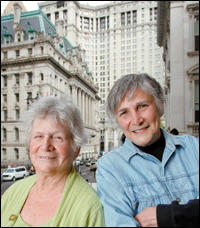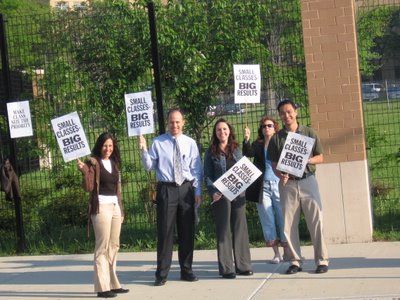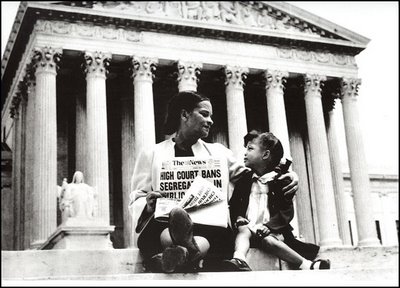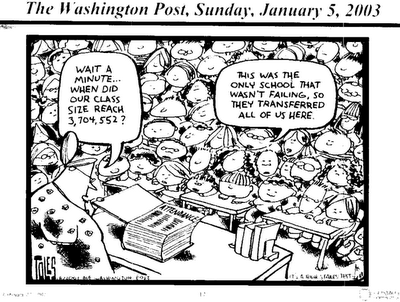A week ago I received an email regarding the same conversation that Mike Klonsky has so eloquently written about on his blog. I am reprinting Mikes work in its entirety. I will also post the rest of the conversation below in the first comment (its a little long but definitely worth the read). Although Mike does a pretty good job of summing up the “small schools” part of the conversation, there is even more to be said about the common ground reached in regards to the common enemy of education the NCLB act.
"If these two can find common ground, why can't we have peace in the Middle East?
Veteran educators Deborah Meier and Diane Ravitch are usually at odds, philosophically and practically. But they have opened up a dialogue which has led them to common ground. Neither has any tolerance for the current standardized testing madness. The latest issue of Edweek carries their co-authored piece: "Bridging Differences," which reads like a memo of understanding between the U.S. and China.
They still are miles apart on issues of mandated curriculum, for which Meier has no use.
 Unlike Deborah, Diane has long supported an explicit, prescribed curriculum, one that would consume about half the school day, on which national examinations would be based. Diane believes in the value of a common, knowledge-based curriculum, such as the Core Knowledge curriculum, that ensures that all children study history, literature, mathematics, science, art, music, and foreign language; such a curriculum, she thinks, would support rather than undermine teachers’ work. Deborah, while strongly agreeing on the need for a broad liberal arts curriculum, doubts that anyone can ensure what children will really understand and usefully make sense of, even through the best imposed curriculum, especially if it is designed by people who are far from the actual school communities and classrooms.
Unlike Deborah, Diane has long supported an explicit, prescribed curriculum, one that would consume about half the school day, on which national examinations would be based. Diane believes in the value of a common, knowledge-based curriculum, such as the Core Knowledge curriculum, that ensures that all children study history, literature, mathematics, science, art, music, and foreign language; such a curriculum, she thinks, would support rather than undermine teachers’ work. Deborah, while strongly agreeing on the need for a broad liberal arts curriculum, doubts that anyone can ensure what children will really understand and usefully make sense of, even through the best imposed curriculum, especially if it is designed by people who are far from the actual school communities and classrooms. For me, the most interesting point of agreement in this amazing dialogue, has to do with small schools. Meier has long been viewed as the godmother of small schools, the founder of the first of the modern small schools, Central Park East in New York, and a consistant voice in their defense. Ravitch has argued that we should be worried about schools getting "too small" to support her core curriculum. (See my Nov. 9, 2005 blog post: "Diane Ravitch Barking Up the Wrong Tree ").
But they both find common ground in their critical view of the current, often thoughtless, mass-replication approach to small schools.
Deborah is a pioneer of the small-schools movement. Diane, while not an opponent of that movement, has questioned whether such schools have the capacity to offer a reasonable curriculum, including advanced classes. Yet here, too, we both fear that a good idea has too often been subverted by the mass production of large numbers of small schools, without adequate planning or qualified leadership and with insufficient thought given to how they might promote class and racial integration, rather than contribute to further segregation. "

















